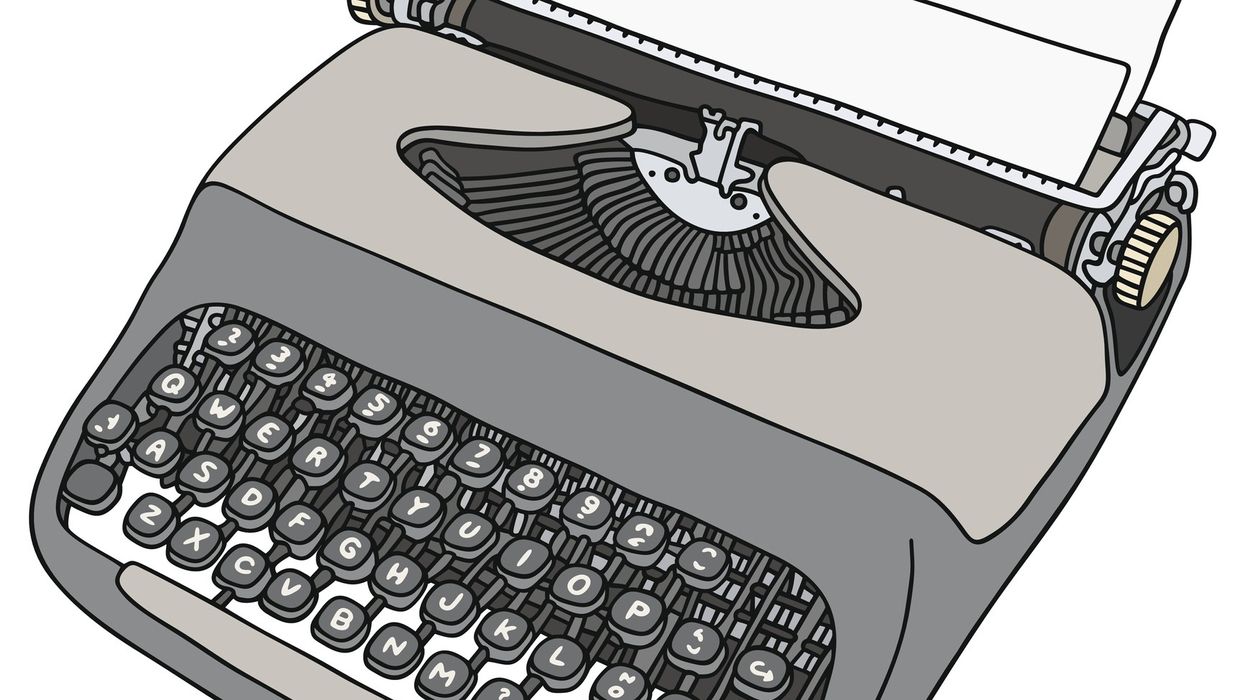5 Things You Can Do Right Now to Make Your Screenplay Better
If your script just isn't hitting the mark, here are a handful of things you can try in order to get it there.

Writing a screenplay is kind of like trying to carry too many things at once. At first, you think you've got a pretty good grip, but pretty soon you feel that grip start to loosen. So, you adjust your arms to accommodate the shifting weight only to realize that some items on the other side are now starting to slip. Then it happens: something falls. So you pick it up, but as you do, something else falls. So, you pick that up, but then another thing falls and so on and so forth until you're just the jackass out in a grocery store parking lot dropping shit and picking shit up ad infinitum.
Yeah, so screenwriting's like that. It can get frustrating at times trying to keep everything together (and off the ground), but the more you know about what works and what doesn't work may help you put your narrative elements in places where they have a better chance of staying put.
In this video, the team over at The Film Look shares five tips that will not only help you lock down your story but will also make it a hell of a lot more interesting.
Typically if you've got some loosey-goosey elements in your screenplay it's due to the fact that they break some of the unspoken "rules" of good storytelling.
You're not torturing your characters enough
The best characters ever written into existence are some of the most dreadful, unlucky, tortured individuals you'll ever come across in literature. Clarice Starling, Randall McMurphy, and even The Dude had to go through incredible adversity in order to overcome their obstacles, whether it was having to get chummy with a charismatic cannibal, being controlled and eventually lobotomized in a mental institution, or getting their car destroyed all because of a rug and several cases of mistaken identity.
If your character is too comfortable, then there's no real reason for them to overcome their major narrative conflict. Turn up the heat and put them through hell. It's your decision whether or not they make it out alive.
You're writing too much exposition
If you look at your screenplay and you see big blocks of dialogue, do me a favor and just cut out 90% of it. Scenes with long dialogue are more often than not scenes with tons of heavy-handed exposition where characters labor through long tedious explanations of why something is happening or who someone is or whatever. Nine times out of ten you don't need these scenes; you can come up with more creative and engaging ways to deliver information to your audience that won't feel like being hit over the head with a copy of Randolph Churchill's biography.
You're not showing, you're telling
Show don't tell, right? Similar to overly expositional scenes, "telling" the audience too much feels clunky and usually will cause your audience to lose interest quickly. They'll be able to engage more with your story if you show them the information they need. I mean, it's one thing to hear someone on screen say, "My father and I just don't get along. He's very withdrawn and it makes me so angry," but it's another thing to watch a scene in which the father and son eat dinner in separate rooms. So, let your images speak for themselves and use dialogue only when you have to.
You're not fulfilling your audience's wishes
Though the video brought up an interesting point about wish fulfillment, I don't necessarily think that it's one of the major elements that you find yourself constantly having to juggle. Of course, watching movies in which the guy gets the girl, the girl gets the job, and the jobs come back to the town are inspiring and entertaining, but you might want to think of some untraditional wishes that fly under the radar.
You're not writing
Yeah, this is the big one. If you're not writing then you're not the jackass out in the grocery store dropping shit and picking shit up, you're the jokester who's at home sorting out expired coupons and waiting for the stuff on your grocery list to go on sale. Guess wait...ain't gon' happen. Sit down and write. That's all you have to do. Don't wait for inspiration to hit you. Don't wait until the weather is perfect and inspirational. Just start writing, even if it's shitty...and it's going to be shitty, believe that. Write that shitty ass first draft and laugh at how horrible it is and tell yourself, "I am writing the worst screenplay ever written," until the thing is done. Then, go back and refine and turn it into the beautiful princess you know it truly is inside...just like in Cinderella...or She's All That.
Source: The Film Look












